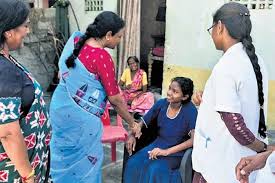Melioidosis: Case In Andhra Pradesh

Health authorities have confirmed melioidosis in a patient from Turakapalem village in Andhra Pradesh.
- Melioidosis caused byan infectious disease caused by the environmental Gram-negative bacterium Burkholderia pseudomallei.
- It is seasonal, with 75–85% of cases occurring during the rainy season.
- It has a high case fatality rate (CFR) ranging from 16% to 50% in known endemic regions.
- It is an infectious disease endemic in Southeast Asia, northern Australia, much of the Indian subcontinent, southern China, Hong Kong, and Taiwan
- Transmission of Melioidosis:
- Touching contaminated soil with the hands or feet, especially if there are small cuts in the skin.
- Drinking contaminated water that has not been chlorinated
- Breathing in contaminated dust or water droplets
- Exposure to severe weather events such as tropical monsoon storms, cyclones, hurricanes and typhoons.
- It is common in people living with: Diabetes, Alcohol use disorder, Chronic kidney disease Chronic lung disease (like cystic fibrosis or COPD).
- Symptoms: Fever, headache, trouble breathing and Stomach or chest pain etc.
- Treatment: At present, there is no vaccine available for melioidosis.




